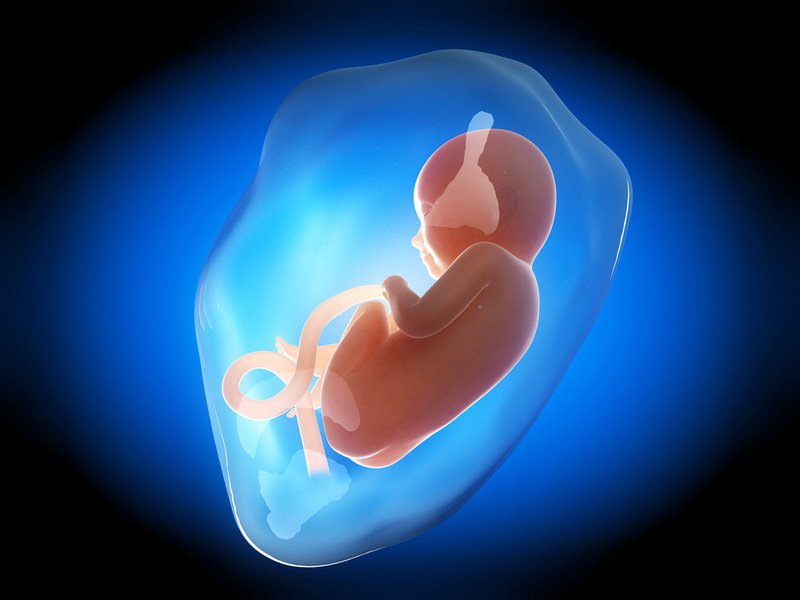Fever during pregnancy dangerous?
The article is professionally consulted by Specialist Doctor II Huynh Thi Hien - Obstetrician and Gynecologist - Department of Obstetrics and Gynecology - Vinmec Nha Trang International General Hospital
During pregnancy, the mother's body has many changes, the immune system is weaker, creating conditions for bacteria to invade, leading to symptoms such as fever. Fever during pregnancy can affect the fetus and the danger depends on the cause and severity of the fever.
1. How to diagnose the causes of fever during pregnancy
Causes of fever during pregnancy are many, here are some common causes:
Appendicitis
Signs: Fever, right iliac fossa pain dull and increasing; Vomiting, nausea, bowel obstruction. Examination: Right iliac fossa reaction, Mac burney (+), normal development of pregnancy uterus This is a case of fever due to surgical cause which needs to be treated by appendectomy.
Cystitis
Signs of recognition: Difficulty urinating, painful urination, painful urination, frequent urination, abdominal pain behind the pubic area. Urine test for white blood cells, sometimes red blood cells and protein
Appendicitis
Signs: Fever, right iliac fossa pain dull and increasing; Vomiting, nausea, bowel obstruction. Examination: Right iliac fossa reaction, Mac burney (+), normal development of pregnancy uterus This is a case of fever due to surgical cause which needs to be treated by appendectomy.
Cystitis
Signs of recognition: Difficulty urinating, painful urination, painful urination, frequent urination, abdominal pain behind the pubic area. Urine test for white blood cells, sometimes red blood cells and protein
Acute pyelonephritis
Signs: High fever, chills, difficulty urinating, frequent urination, abdominal pain in the lower back, pain in the ribs Blood test neutrophils increased, urine test showed white blood cells, red blood cells, urine culture for bacteria and antibiogram. Ultrasound of renal pelvis dilated, dilated ureters, normal fetal development. Treat urinary tract infections with antibiotics, preferably according to the results of the antibiotic chart.
Bacterial upper respiratory tract infection
This is a common cause of fever, sore throat, hoarseness, yellow runny nose, dry cough or productive cough. Treatment with antibiotics, anti-inflammatory reduce secretions.
Pneumonia
Signs: Fever, often high fever, chills, shortness of breath, chest pain, cough with sputum Examination: Throat congested red, auscultating crackles, moist rales. The chest x-ray shows opacities of the lung lobes (note the lead plate to protect the fetus). It is important to detect and treat with antibiotics as soon as possible.
Viral fever
Can be caused by many viruses such as influenza, rubella, mumps, chickenpox, dengue virus causing hemorrhagic fever..
Signs: High fever 38-40◦ C, upper respiratory tract infection (sore throat, runny nose, cough ...), body aches and pains, signs of fever disappear after 1 week. Rubella: Rash on face, hands, body. Mumps: Swollen, hot, painful parotid salivary glands on one or both sides. Chickenpox: Blisters of different sizes. Treatment is mainly symptomatic treatment: Reduce fever, improve physical condition. In the first 3 months of pregnancy, attention should be paid to the possibility of affecting the fetus, causing fetal malformations.

Sốt có thể do nhiều loại virus gây ra như cúm, rubella, quai bị, thủy đậu, virus dengue gây sốt xuất huyết..
Malaria
Signs: Uncomplicated malaria: Chills, fever, periodic sweating (daily or every other day), headache, joint pain, muscle pain. Possible splenomegaly Malignant malaria with severe complications: Malaria with anemia, coma, hemoglobinuria, possibly convulsions, jaundice. Laboratory tests: Peripheral blood smear for parasites, rapid test for antibodies. It should be detected and treated with drugs early, the disease has the potential to affect the mother and baby. Malignant malaria poses a life-threatening risk to the mother and many risks to the fetus.
Hepatitis B
Signs: Fever, fatigue, loss of appetite, jaundice, yellow urine, enlarged liver; May have muscle pain, joint pain, urticaria, splenomegaly. Laboratory tests: Liver function, elevated liver enzymes, antibodies to virus antigens HbsAg, HBeAg, Quantification of virus version in blood (PCA). Viral hepatitis occurs during very severe labor due to acute liver failure, bleeding due to coagulopathy, hepatic coma due to liver failure. It should be distinguished from: Severe pre-eclampsia, HELLP syndrome
Treatment: Pregnant women need to be treated in the infectious disease department, rest to improve their condition and take drugs to reduce the amount of virus in the blood.
Pregnancy infection
Symptoms: Fever, foul-smelling gas, painful uterus, possibly lower abdominal pain, abdominal wall reaction, prolonged vaginal bleeding, pus draining from the cervix, possibly miscarriage pregnancy, stillbirth. Treatment: Antibiotics as soon as possible. Removal of the fetus and placenta from the uterus by medication or by an instrument. Amniotic fluid infection
Symptoms: Common in premature rupture of membranes, premature rupture of membranes, improperly handled, sometimes in prolonged labor. Fever is a common symptom, high fever, chills, foul vaginal discharge, abdominal pain, fetal tachycardia. Uterus is painful, amniotic fluid has a bad smell. Amniotic fluid culture with bacteria, high neutrophil blood test, CRP test (+). Treatment: High-dose antibiotics, combined according to the antibiogram. Pregnancy management depends on obstetric indications, sometimes cesarean section is needed, in severe cases, hysterectomy may be required.
Signs: Uncomplicated malaria: Chills, fever, periodic sweating (daily or every other day), headache, joint pain, muscle pain. Possible splenomegaly Malignant malaria with severe complications: Malaria with anemia, coma, hemoglobinuria, possibly convulsions, jaundice. Laboratory tests: Peripheral blood smear for parasites, rapid test for antibodies. It should be detected and treated with drugs early, the disease has the potential to affect the mother and baby. Malignant malaria poses a life-threatening risk to the mother and many risks to the fetus.
Hepatitis B
Signs: Fever, fatigue, loss of appetite, jaundice, yellow urine, enlarged liver; May have muscle pain, joint pain, urticaria, splenomegaly. Laboratory tests: Liver function, elevated liver enzymes, antibodies to virus antigens HbsAg, HBeAg, Quantification of virus version in blood (PCA). Viral hepatitis occurs during very severe labor due to acute liver failure, bleeding due to coagulopathy, hepatic coma due to liver failure. It should be distinguished from: Severe pre-eclampsia, HELLP syndrome
Treatment: Pregnant women need to be treated in the infectious disease department, rest to improve their condition and take drugs to reduce the amount of virus in the blood.
Pregnancy infection
Symptoms: Fever, foul-smelling gas, painful uterus, possibly lower abdominal pain, abdominal wall reaction, prolonged vaginal bleeding, pus draining from the cervix, possibly miscarriage pregnancy, stillbirth. Treatment: Antibiotics as soon as possible. Removal of the fetus and placenta from the uterus by medication or by an instrument. Amniotic fluid infection
Symptoms: Common in premature rupture of membranes, premature rupture of membranes, improperly handled, sometimes in prolonged labor. Fever is a common symptom, high fever, chills, foul vaginal discharge, abdominal pain, fetal tachycardia. Uterus is painful, amniotic fluid has a bad smell. Amniotic fluid culture with bacteria, high neutrophil blood test, CRP test (+). Treatment: High-dose antibiotics, combined according to the antibiogram. Pregnancy management depends on obstetric indications, sometimes cesarean section is needed, in severe cases, hysterectomy may be required.

Nhiễm khuẩn ối là một trong những nguyên nhân gây sốt ở bà bầu
2. Fever during pregnancy is dangerous?
The severity of the fever depends on the cause of the fever and the severity of the fever.
If fever in the first 3 months is caused by some viruses: Causes miscarriage, stillbirth, can cause birth defects. Of these viruses that often cause fever, fever caused by rubella infection is considered the most dangerous because it can lead to birth defects in the fetus with a risk of up to 90%, possibly termination of pregnancy. Viral fever from 3 months onwards has a lower risk of complications, but some diseases can still seriously affect the mother and fetus. For example, dengue fever at any stage can cause blood loss affecting the mother and baby... Pregnant women have reduced resistance, so when they have fever due to microbial infection, they can more severe symptoms. In the early stages of pregnancy, a low-grade fever may not affect the fetus, but a high fever above 39.5 degrees Celsius can be dangerous to the baby. Sudden rise in body temperature makes the fetus unable to adapt easily leading to miscarriage. Pregnant women with fever during pregnancy need to use drugs to treat some diseases that can affect the fetus. If the cause of fever is due to infection of the fetus or infection of the amniotic fluid, it is very dangerous because most of the time, the fetus must be removed. The mother is at risk of having a hysterectomy.
If fever in the first 3 months is caused by some viruses: Causes miscarriage, stillbirth, can cause birth defects. Of these viruses that often cause fever, fever caused by rubella infection is considered the most dangerous because it can lead to birth defects in the fetus with a risk of up to 90%, possibly termination of pregnancy. Viral fever from 3 months onwards has a lower risk of complications, but some diseases can still seriously affect the mother and fetus. For example, dengue fever at any stage can cause blood loss affecting the mother and baby... Pregnant women have reduced resistance, so when they have fever due to microbial infection, they can more severe symptoms. In the early stages of pregnancy, a low-grade fever may not affect the fetus, but a high fever above 39.5 degrees Celsius can be dangerous to the baby. Sudden rise in body temperature makes the fetus unable to adapt easily leading to miscarriage. Pregnant women with fever during pregnancy need to use drugs to treat some diseases that can affect the fetus. If the cause of fever is due to infection of the fetus or infection of the amniotic fluid, it is very dangerous because most of the time, the fetus must be removed. The mother is at risk of having a hysterectomy.

Sốt khi mang bầu có thể gây biến chứng nguy hiểm ảnh hưởng tới thai nhi
Fever during pregnancy can cause dangerous complications affecting the fetus. To prevent some causes of fever, pregnant women should be fully vaccinated before trying to become pregnant, especially rubella because it can cause birth defects when infected in the first 3 months. If you have symptoms of fever, you should immediately make an appointment with an obstetrician-gynecologist for advice and prompt intervention.
Để đặt lịch khám tại viện, Quý khách vui lòng bấm số HOTLINE hoặc đặt lịch trực tiếp TẠI ĐÂY. Tải và đặt lịch khám tự động trên ứng dụng MyVinmec để quản lý, theo dõi lịch và đặt hẹn mọi lúc mọi nơi ngay trên ứng dụng.
Bài viết này được viết cho người đọc tại Sài Gòn, Hà Nội, Hồ Chí Minh, Phú Quốc, Nha Trang, Hạ Long, Hải Phòng, Đà Nẵng.






